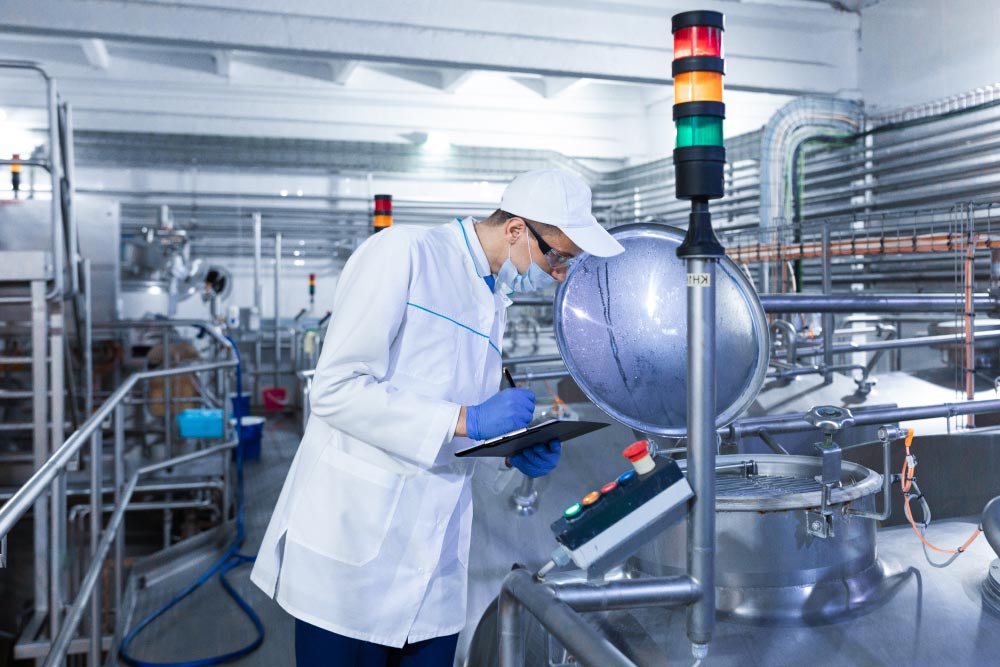In general, a logistics operator is a company that designs, manages and controls the supply chain of another company. The logistics operator, depending on the commercial agreement between both companies, can operate during supply, transport, storage and/or distribution.
In this article we will deepen in the functions of the logistics operator, its advantages, disadvantages and other data on the sector.
Main functions of the logistics operator
The main function of a logistics operator is to optimize the processes of product acquisition, storage, transport and distribution in an efficient way for the company for which they work. For this, it is essential that you have the physical and technological infrastructure and information systems necessary for the proper development of your work. However, there are logistics operators that outsource part of these infrastructures without loss in the quality of their services.
For a better analysis of the functions of the logistics operator, we will consider the different phases in which these provide their services.
Order Processing
This phase includes all the activities corresponding to the preparation, transmission, entry and assortment of the order as well as the report on the status of the order.
The work of the logistics operator in the order processing phase, although not usually very common, is framed in the activities of collecting information for the purchase order as well as its verification and transmission.
Material Handling
The material handling phase includes all processes related to the movements, places, times, quantities and space occupied by the goods.
When the logistics operator intervenes in the material handling phase, it must guarantee the transport of the materials (raw materials, parts and / or finished products) from one place to another. This management and control are essential to make the process more efficient ensuring that no activity of the company is affected by the early or late arrival of materials.
It is also crucial that all materials are delivered in the right place, in optimal conditions and in the exact quantities specified in the orders.
In the material handling phase, the logistics operator must use the transport system that best suits the needs of the company and the merchandise. In addition, the logistics operator must ensure to have adapted storage spaces in case the contracting company does not have them.
Packing
It is necessary to make decisions about the system and forms of protection that will be given to the products. The packaging is of great importance in the handling and transport of any type of merchandise to protect the properties of the products it contains.
Good packaging is often decisive not to suffer loss or deterioration in the operations of transport, transport and handling.
When planning the packaging that best suits each merchandise, the logistics operator must consider:
- the nature of the cargo: whether it is perishable, fragile, dangerous…
- the value of the merchandise: the higher the value of the cargo, the more elaborate its packaging will be
- handling conditions: it must be considered how it will be loaded, unloaded and handled, (if hooks, platforms, forklifts, cranes or other machinery will be used)
- how it will be stored in transport: stacked, in warehouses …
- whether it will undergo customs inspections: since the packaging will need to be opened and closed
- the temperature and climatic conditions to which it will be subjected during transport, origin and destination
- the languages of origin and destination to be included in the packaging
- the means of transport: land, sea, air or a combination, considering, for instance that air transport of goods requires a lighter packaging.
- the total time of the merchandise’s journey
Product Transport
This is probably one of the most important phases for the logistics operator and the one for which they are usually hired. In general, to ensure adequate transport, the freight company should consider both the means of transport and the routes to be taken.
In air transport, merchandise may be transported in cargo or commercial airplanes. Sea freight is carried out by cargo ships for both loose cargo and containers. Finally, land transportation is usually done using freight trains or trucks.
Depending on the distance between the place of origin and destination, it may be necessary to use one or all of the different means of transport. In addition, there are many occasions when the availability of the different types of transport in the countries of origin and destination will mark which type can be used.
Freight transport becomes increasingly necessary. The new consumption trends through online shopping make faster and immediate transport necessary. In this sense, freight companies become a strategic partner for a large number of businesses and markets, being the key, in a large number of cases, to an important differentiating advantage over the competition.
Regarding the choice of routes, it is important to analyse which routes are the most advisable to maximise the cost of transport and, thus, to increase as little as possible in the final price of the product.
Storage
The logistics operator must advise the company on which storage system is best suited to its business and its characteristics.
Traditionally, companies had the necessary space for the storage of merchandise. However, currently, there are a number of agents and intermediaries in the product marketing process. This fact has influenced the creation of new product storage areas that store products from different companies waiting to be distributed based on purchases or orders. These are the well-known logistics centres that facilitate the loading, unloading and logistics management of the merchandise.
Inventory control phase
Finally, among the functions of the logistics operator you can also find inventory control activities. This phase covers inventory management, quantity registration and item location.
To carry out an efficient inventory management it is necessary to have a management software. Thanks to this type of software, it is possible to solve routine issues such as knowing the quantity of items left in the warehouse without having to carry a physical inspection. It will be necessary to record each of the inventory operations in order to optimize the time and the precision of the inventory operations, contributing to a greater productivity.
Advantages of having a logistics operator
As we have seen in this article, there are many functions that the logistics operator can perform for the contracting company. Among the benefits of a logistics operator in the marketing process of a company, we can highlight:
- the reduction of storage, distribution and transportation costs due to economies of scale and the synergy between operators
- the reduction of product losses thanks to the experience and effectiveness of the operators
- decrease in transport costs since only contracted services are paid without having to maintain a logistics structure
- the focus on the core business activities by outsourcing other operations to the logistics operator
- access to more efficient and up-to-date technology
We hope this article has been of interest to you. For any questions or queries do not hesitate to contact us at any of our branches. You can also follow us on: Facebook, Twitter and LinkedIn.


